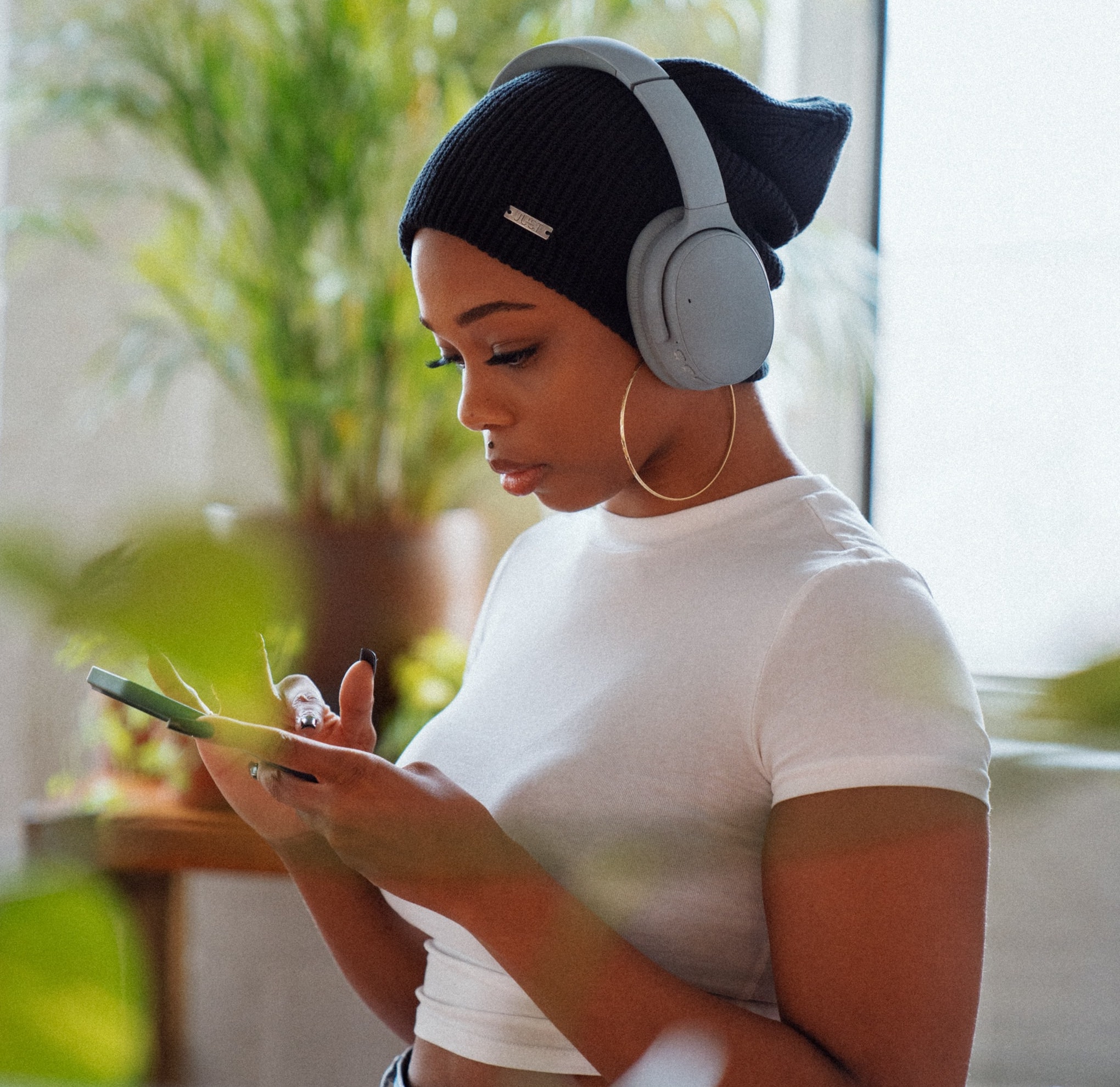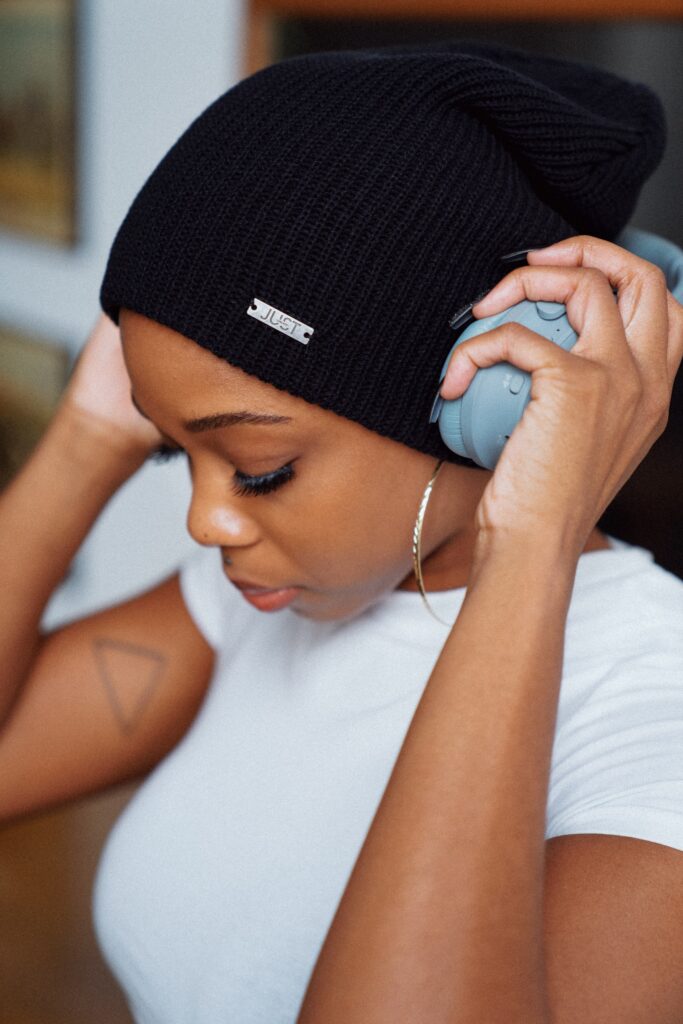
28 Jan Black Women Love Hip Hop, But It Doesn’t Love Us Back
In 2002, hip-hop fans and rom-com lovers were blessed with the movie ”Brown Sugar.” Actress Sanaa Lathan starred as Syd, a young editor and journalist at a hip-hop magazine, who asked all of her interviewees the same question: “When did you first fall in love with hip hop?”
Falling in love would be an interesting choice of words for a Black woman to use because the hip-hop industry does not love women in the same way that women love hip-hop. Women are deeply and emotionally connected to this genre, despite the fact that their role in the growth of the industry is easily dismissed. Black women like Sylvia Robinson, Queen Latifah, Missy Elliot and others helped mold hip-hop into the musical juggernaut it is today.
Unfortunately, music videos now reduce most black women to eye candy, and lyrics depict them as objects for pleasure. And in real life, male artists and executives across genres use their power and influence to silence and violate women. As we prepare to celebrate the world of music at Sunday’s Grammy Awards, where hip-hop happens to have dominated the nominations in multiple categories, we should ask: When is the industry we love going to collectively acknowledge it’s legacy of sexual assault, shame and silence?
“Hip-hop is black women’s baby, and what mother isn’t protective of her child?”
In his 2014 song “You,” rapper Chief Keef states, “Ain’t gon’ let me fuck, and I feel you. But you gon’ suck my dick ’fore I kill you,” literally threatening a woman’s life if she refuses to perform oral sex. This line made it past each level of production ― writing, recording, mixing, distribution ― seemingly without a single person saying, “maybe you shouldn’t normalize threatening to kill women who refuse to have oral sex with you.” And lyrics like this aren’t unique to just one rapper.
Even socially conscious MCs like the beloved Nas, who created the 90’s hit “If I Ruled the World” with the soulful Lauryn Hill, are guilty. In the song, he imagines what he would do if he had complete control over the world: For the men, he would “open every door in Attica and send them to Africa,” freeing prisoners and returning them “home.” For women, “every girl I would meet would go down town.” In Nas’ “perfect” world, the men would be free and the women would be virtual sex slaves. And like Lauryn Hill, the whole world sings along with tracks that reduce black women to sex objects in a culture that black women birthed.
Beyond lyrics and in the real world, industry heavyweights like rapper, producer and business executive Dr. Dre can still have a lucrative career after admitting to physically abusing women. In 1991, Dre physically attacked “Pump It Up” host Dee Barnes, who alleged that he threw her down a flight of stairs, slammed her head against a wall, kicked her and stomped on her fingers. Dr. Dre told Rolling Stone shortly after the incident, “It ain’t no big thing – I just threw her through a door,” while his groupmate Eazy-E cosigned: “Bitch deserved it.”
If Dr. Dre’s career trajectory after that admission is any indication of how we view the physical violence suffered by black women, then I imagine millions of people consider it “no big thing.” Even after he publicly admitted it, Dr. Dre was still able to become a world-renowned hip-hop artist with a net worth of $740 million.
This type of wealth creates power, and we’ve seen powerful men in hip-hop use their position to silence victims. Recently, three brave women came forward to allege that they were raped by Russell Simmons, a legendary gatekeeper in the hip-hop community. These women described feeling “powerless” against the mogul and afraid that if they spoke publicly about what Simmons allegedly did, they would be ostracized by the community in which they worked. We’ve known for decades that singer R. Kelly repeatedly uses his power and influence to allegedly coerce minors into inappropriate relationships with him. We all know about his illegal marriage to a 15-year-old Aaliyah. We’ve read the stories about his compound where he allegedly keeps a cult of underaged black girls against their will. Yet this man is still able to sell tickets to shows and go on a world tour.

Still, hip-hop is black women’s baby, and what mother isn’t protective of her child? I suspect this deep sense of protection is part of the reason we choose to ignore the many ways the industry has violated women. We may never see a massive public reckoning with sexual harassment like the one we’re witnessing in Hollywood. Respectability politics dictate that black people ― entertainers included ― overcome historical stereotypes that label us violent, sex-hungry criminals. Having a public conversation around real-life crimes like sexual harassment and assault that occur within the hip-hop industry ― within our family ― would feel like pulling the curtain back and exposing your family issues to the world. It’s uncomfortable, and it stands in direct contradiction to the adage, “family business is family business.”
“If we truly love music and the women who are suffering in silence, then we should collectively use our power to create something better.”
So, in the name of family, poisonous secrets like sexual assault are swallowed. But when poison is digested, it causes a slow and painful death. In hip-hop, women who have repeatedly swallowed poison in the name of “family” are slowly dying, in silence.
As stories of violence and sexual harassment against women continue to become more public, it’s fair to say that this phenomenon isn’t exclusive to hip-hop. Pop star Ke$ha, who’s slated to perform Grammy Awards ceremony, recently went through a lawsuit with famous music producer Dr. Luke, wherein she accused him of sexual assault, sexual harassment and gender violence. Taylor Swift, a country music singer who’s nominated for two Grammys this year, has been vocal about her own alleged assault at the hands of David Mueller, a radio personality. But their star power combined with the numerous tales of violence in hip-hop are still not enough to spark a movement for change in the industry.
If we truly love music, hip-hop culture and the women who are suffering in silence, then we should collectively use our power to create something better. Will we keep loving problematic things, acknowledging that some “bad feminism” is unavoidable, or do we finally put our feet down? What if we showed how much we value black women by refusing to support artists who create music that normalizes abuse? What if we stopped supporting artists who are so casual with their abuse that they tell us about it in their lyrics?
Cash rules everything around music. Use yours to send a message that even though no one is stopping artists from bragging about assault at the production level, we, the listeners, will stop them at the consumer level. Supporting musicians who brag about raping and killing women provides those artists with the money and power they need to continue to silence their victims. We can no longer be passive spectators, complicit in a performative type of love. Real love demands better.
If ”Brown Sugar” was set in 2018, the character Syd may ask something a little different than “When did you first fall in love with hip-hop?” She may instead want to know, “When is hip-hop going to show love for black women?” Or perhaps: “Is your favorite artist promoting violence against women?” How about: “What are we going to do about the silence around violence in hip-hop?” Women love to listen to hip-hop, but as the industry’s silence about sexual assault shows, hip-hop doesn’t love to listen to women.




Sorry, the comment form is closed at this time.